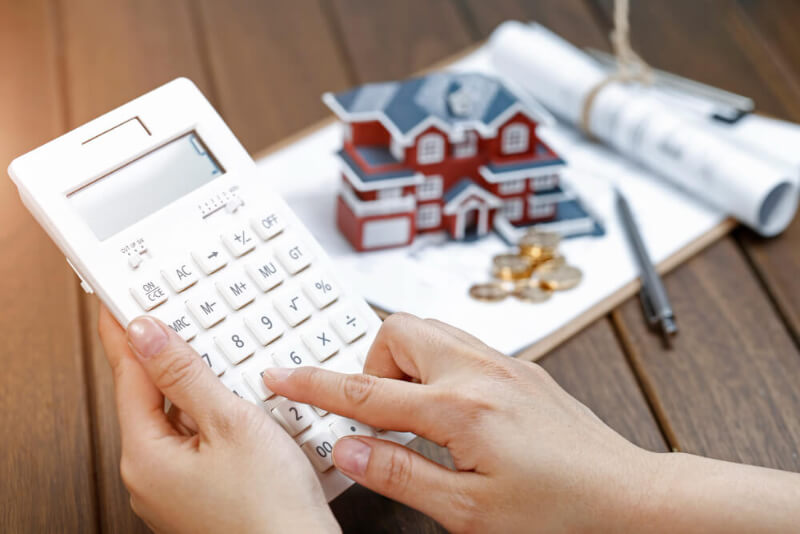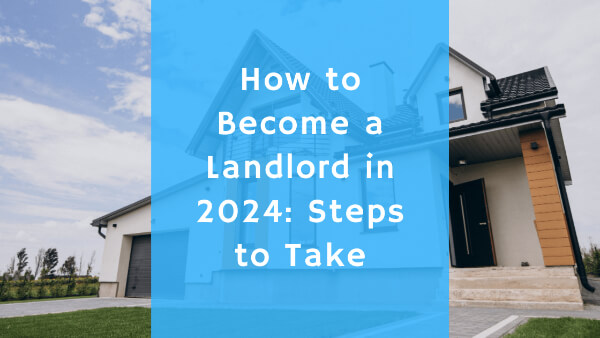Becoming a landlord can be a lucrative and rewarding venture, providing a steady stream of passive income and potential long-term financial growth. But you also have to understand the costs and risks involved in it. Investment of money and time, knowledge of the laws, being aware of all the maintenance and proper functioning of the home, contracting insurance and supplies…
Whether you’re considering renting out a home you currently own or purchasing an investment property, in this guide we’ll walk you through the essential steps to become a successful landlord.

1. Research and education
If you are purchasing a new home to become a landlord and invest in as a rental, before diving into the world of real estate, take the time to research and educate yourself about the local market, property values and rental trends. Market research is a crucial aspect when choosing where to buy the property and deciding the rent that tenants can pay while allowing you to make a profit.
It is also important to research the properties for rent in the area, since if there are a lot of unoccupied rental properties, that can mean that it can be a difficult area to rent.
If you want to rent a property you already own, market research is still important to find the best rental rate.
Here are key aspects to keep in mind when searching for the perfect rental property:
- Financial considerations: Factor in property taxes, insurance, maintenance costs, and any potential homeowners‘ association fees.
- Location: Consider the neighborhood’s safety, proximity to amenities, schools, public transportation, and potential for future development.
- Property condition: Identify any necessary repairs or maintenance issues. Also, consider the age of the property and potential for renovations or improvements.
- Return on investment (ROI) analysis: Evaluate the potential for rental income against the initial investment and ongoing expenses. Calculate the cap rate, cash flow, and other financial metrics as possible inflation rates with a view to 10 or 15 years, to ensure the property aligns with your financial goals.

2. Financial Planning
Assess your financial situation and create a realistic budget. Factor in potential property acquisition costs, maintenance expenses, property taxes, insurance, and a contingency fund for unforeseen issues (account for at 4-8% of the rental income to a buffer of liquidity to cover ungoing expenses or short term fixes).
Explore financing options, such as mortgages, to fund your property purchase. Compare interest rates, loan terms, and down payment requirements to secure the most favorable deal. Consult with financial advisors or mortgage brokers to help you make informed decisions.
3. Purchase landlord insurance
Landlord insurance is intended to protect your rental property from structural damage and help cover accidents and various associated costs.
Since landlord insurance only covers your property, tenants should be encouraged to purchase renters insurance so their belongings are protected as well.
4. Legal and Regulatory Compliance
Understand and comply with local landlord-tenant laws. This includes creating a lease agreement that outlines the terms and conditions of the rental, security deposit regulations, eviction procedures, and tenant rights. Consider consulting with a legal professional to ensure your documentation is legally sound.

5. Property Management
Decide whether you’ll manage the property yourself or hire a professional property management company. If you choose self-management, be prepared to handle tenant communication, property maintenance, and any unforeseen issues that may arise. A property management company can handle these responsibilities on your behalf for a fee.
6. Determine the rental price
As we already told you in our post on how to calculate the rental price of a property, it is important to charge a reasonable amount that allows you to generate profits, while not being too high.
You can start by analyzing other properties in the area and their rental prices to get an idea. Then you must analyze the operating expenses of the property, such as taxes, insurance, maintenance and repairs…
If you want a complete guide to choosing the best price for your property, don’t miss the post on how to calculate the price of a property.
7. Market the rental property
Effectively market your property to attract potential tenants. Utilize online platforms, social media, and traditional advertising methods.
If you choose to do it through a real estate agent, they can take care of everything: list the property in prominent locations online, arrange viewings with potential tenants… Please note that this option would require a fee, while if you do it yourself, you would do everything at no cost.

8. Tenant Screening
Develop a thorough tenant screening process to ensure you select reliable and responsible tenants. Conduct background checks, verify employment and rental history, and check references.
If you take a look at our post on what tenant selection is and why you need it, you will understand the vital importance of this point in how to become a landlord.
If you choose to do your tenant screening with the help of KBA, you can have peace of mind thanks to our artificial intelligence algorithm called SmartRentScore (SRS) that leverages thousands of rental agreements and advanced machine learning.
SRS provides our clients with a probability of rent default, the main risk factors for the tenant and a sensitivity analysis of the probability for different rent levels.
Plus, each review with SRS only takes a few seconds and our software solution is already connected and integrated with major credit bureaus.
Don’t hesitate to contact us if you want more information!
Once you have decided on the tenant to whom you want to rent your property, be sure to sign a rental contract that specifies all the necessary clauses.
9. Mantain the property and a relationship with the tenants
Once you have tenants living in the property, you are still responsible for ensuring that everything runs smoothly. If they have any problem at home, try to solve it as soon as possible. This way you will ensure that you have happy tenants and a property that is well maintained.
In addition to solving problems that may arise, it is also important that you contact the tenants from time to time to see if they need anything.
Some maintenance ideas that should be done periodically could be the following:
- Inspect doors, walls, furniture… Any electronic system must also be well maintained.
- Check the HVAC units: Make sure that the heating, ventilation, and air conditioning units are functioning properly.
As a conclusion, becoming a landlord involves careful planning, financial responsibility, a commitment to staying informed about the real estate market and legal obligations, maintenance… By following these steps, you can embark on a successful journey as a landlord, enjoying the benefits of passive income and real estate investment.

